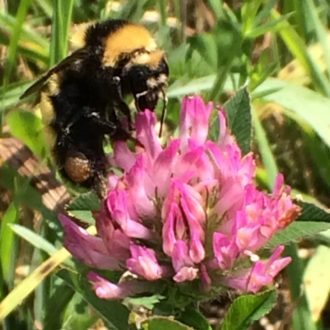Because native bees are significant contributors to crop pollination, their integration into farm systems—through conservation or restoration of natural and semi-natural areas, as well as the protection of nest sites and prudent insecticide use—is essential to agricultural production over the long-term.
Led by pollinator program co-director Eric Mader, the national environmental non-profit, The Xerces Society, conducted full-day pollinator conservation short courses in all 12 Northeast states through their Professional Development project.
The courses covered basic pollinator biology, latest research results on the role of wild pollinators in agriculture, conservation practices that support pollinators, habitat guidelines, pollinator-loving plant guides customized for the Northeast and Mid-Atlantic, and financial and technical support available from USDA conservation programs. The project trained 1,469 staff from the USDA Natural Resources Conservation Service (NRCS), Soil and Water Conservation Districts, Certified Crop Advisors, USDA Farm Service Agency (FSA), Cooperative Extension, and farm organizations, as well as farmers and other individuals.
Follow-up surveys showed that the project improved attendees’ skills and capacity to implement pollinator conservation efforts, like installing wildflower-rich conservation buffers and reducing tillage to protect ground-nesting bees. At least 239 participants used the information they gained to make management changes to improve conditions for pollinators on 4,545 acres.
